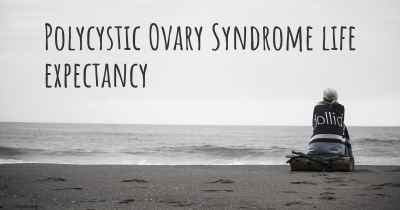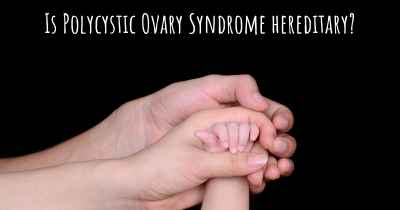Can people with Polycystic Ovary Syndrome work? What kind of work can they perform?
See how people with experience in Polycystic Ovary Syndrome give their opinion about whether people with Polycystic Ovary Syndrome can work and what kind of jobs are more appropriated for people with Polycystic Ovary Syndrome

Polycystic Ovary Syndrome (PCOS) is a hormonal disorder that affects many women of reproductive age. It is characterized by the presence of multiple cysts on the ovaries, irregular menstrual cycles, and high levels of androgens (male hormones) in the body. PCOS can also lead to various symptoms such as acne, weight gain, and infertility.
When it comes to work, individuals with PCOS can certainly pursue and excel in various careers. The ability to work is not directly affected by PCOS itself, but rather by the symptoms and complications that may arise from the condition. It is important to note that PCOS affects each person differently, and the severity of symptoms can vary greatly.
Managing PCOS symptoms is crucial for individuals with the condition to maintain a healthy work-life balance. This may involve lifestyle modifications, medical treatments, and regular check-ups with healthcare professionals. By effectively managing their symptoms, individuals with PCOS can lead productive and fulfilling professional lives.
The type of work that individuals with PCOS can perform is not limited by the condition itself. PCOS does not restrict one's ability to pursue a specific career or profession. However, certain symptoms associated with PCOS may pose challenges in certain work environments. For example:
- Irregular menstrual cycles: PCOS can cause irregular periods, which may lead to discomfort or increased need for time off work. Open communication with employers and understanding work policies can help individuals with PCOS manage these challenges effectively.
- Infertility: While PCOS can affect fertility, it does not render individuals incapable of working. However, those undergoing fertility treatments may require flexibility in their work schedules to accommodate medical appointments.
- Weight management: Many individuals with PCOS struggle with weight gain or difficulty losing weight. This can impact self-esteem and overall well-being. Encouraging a supportive work environment that promotes healthy habits and work-life balance can be beneficial.
- Emotional well-being: PCOS can have an impact on mental health, with increased risk of anxiety and depression. It is important for individuals with PCOS to prioritize self-care and seek appropriate support, which may include therapy or counseling.
Despite these potential challenges, individuals with PCOS can thrive in a wide range of careers. The key is to find a work environment that is understanding, supportive, and accommodating of their specific needs. Some individuals with PCOS may choose to work in fields related to healthcare, such as gynecology or endocrinology, to contribute to the understanding and treatment of the condition. Others may pursue careers in education, technology, arts, or any other field of interest.
It is important to remember that PCOS does not define a person's capabilities or limit their potential in the workplace. With proper management of symptoms and a supportive work environment, individuals with PCOS can excel in their chosen careers and contribute to society in meaningful ways.
Posted Mar 3, 2017 by Chanté 1000
Posted Apr 12, 2017 by Ljdb 2620
Posted May 22, 2017 by RKaye09 5080
Posted Oct 28, 2017 by lisa 3365
Posted Jun 21, 2018 by Shelby 2770
Posted Jun 22, 2018 by Malin 700








